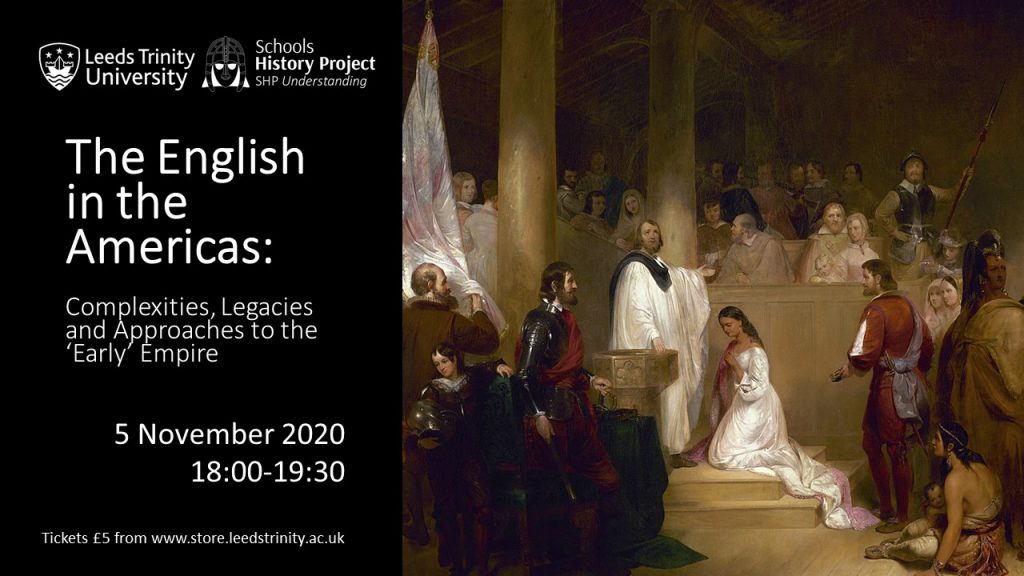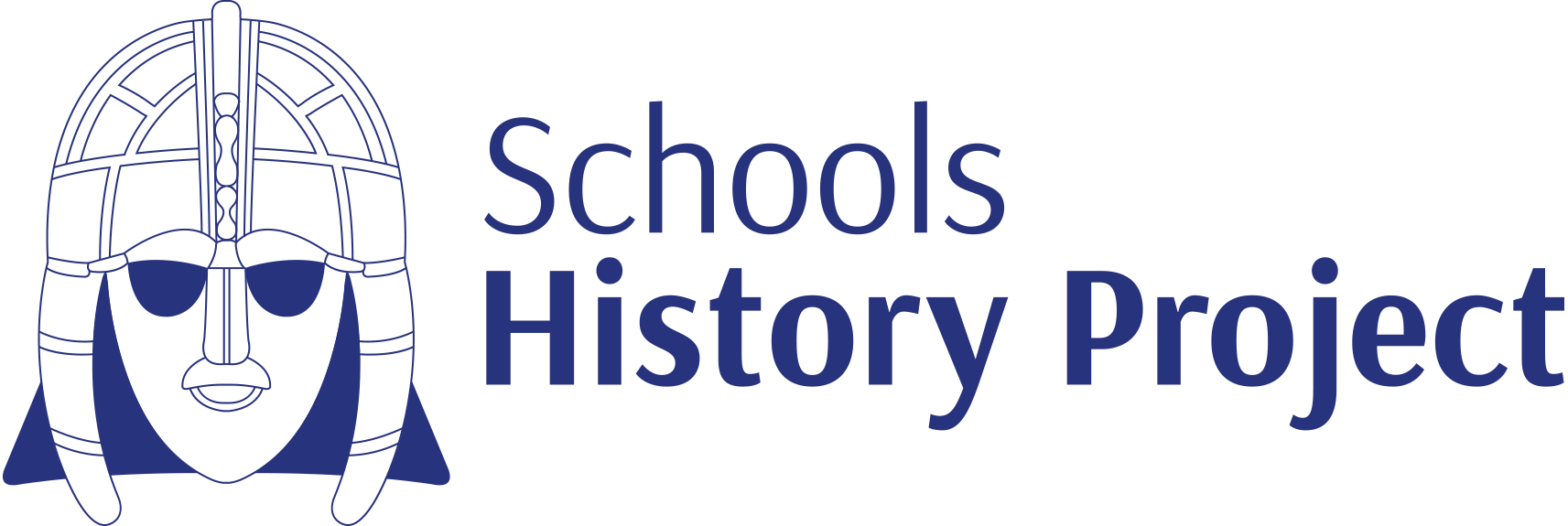
Please note the slight change to the start time which is now 18:00.
Following on from the hugely popular #SHPUnderstanding session on the American West earlier this year, the Schools History Project is delighted to offer a new #SHPUnderstanding session, entitled the English in the Americas: Complexities, Legacies and Approaches to the ‘Early’ Empire.
2019 marked the 400th Anniversary of the establishment of the first colonial representative assembly in Virginia. The popular memory of the first General Assembly meeting has come to eclipse a darker legacy of the year – the arrival of the first enslaved people in the English colonies. The New York Times’ 1619 project sought to highlight this ‘other’ anniversary to consternation in some circles including direct criticism for being ‘unpatriotic’ by the President.
The toppling of Colston’s statue in Bristol, the National Trust’s publishing of the links between enslavement and its properties and the moving of the bust of Hans Sloane within the British Museum have all inspired similar debates within the UK. Within the history teaching community there also appears to be a genuine wish to better grapple with and teach our colonial history effectively.
The Schools History Project believes as a matter of principle that school history should allow students to better understand the world in which we live. In response to this we have sought the expertise of historians of early America and the Caribbean. On 5 November 2020 (18:00-19:30) SHP will be hosting an expert panel discussion on the theme “Complexities, Legacies and Approaches to the ‘Early’ Empire”.
You can sign up by following the link here.
Sign Up
The discussion will cost £5 to attend. Please follow the link here to sign up. The panel will cover issues raised directly by history teachers over the last few months including:
- Key knowledge for teachers preparing to teach about migration and colonisation of America and the Caribbean in the early modern period at KS3, 4 or 5
- Understanding how this period of history has been simplified and mythologised in popular memory (and sometimes specifications)
- Being critically aware of appropriate approaches to this colonial history
- Ways to provide a better narrative of the development of race and enslavement as well as indigenous histories of the period
- Utilising the teaching of this period at KS3 to give greater context to KS4 and KS5 courses
The discussion will be supplemented by the opportunity to ask our experts key questions as well as with resources and reading lists to aid your future planning.
Further Details
We will be welcoming panellists from the US, Canada and UK. Confirmed panellists include:
Kerry Apps, teacher. Kerry is Head of History at a high achieving boys’ school in Peckham, south London. Her historic interests lie in the early modern period and the social history of the English Atlantic world. Kerry is particularly interested in how ideas of English identity were maintained and developed in early America and the Caribbean an area which she will be taking up at Masters level in 2021. Twitter @KerryKitsch
Dr Misha Ewen, University of Manchester. Misha is a specialist in the social and economic history of the early modern Atlantic world. You may have heard her recently discussing the myths of the Mayflower on the ‘You’re Dead to Me’ podcast. Misha is particularly interested in colonialism, women, the family and material culture. Misha is a contributor to the Colonial Countryside project and has published upon women’s involvement in the Virginia and East India Companies. Twitter @mishaewen
Professor David Stirrup, University of Kent. David Stirrup is a specialist in indigenous studies and in particular Native North American Literature and visual arts. In 2019 David established the Centre for Indigenous and Colonial Settler Studies at the University of Kent, the first such centre of its kind in the UK. David is currently working upon the AHRC funded project ‘Beyond the Spectacle’ which highlights indigenous Native North American presence in the UK. Twitter @DFStirrup
Professor Coll Thrush, University of British Columbia. Coll Thrush is a specialist in indigenous and settler colonial histories. Coll specialises in histories of place and the intersections of indigenous and settler colonial histories. Coll has written on urban migrations of indigenous populations to Seattle and their maintenance of culture and memory within the urban landscape. More recently Coll in Indigenous London: Native Travellers at the Heart of Empire has highlighted the stories and experiences of indigenous men, women and children in the capital. Twitter (for department) @UBC_History
Dr Lauren Working, University of Oxford. Lauren is a specialist in Jacobean politics, colonisation and ideas of Empire. In her recently published The Making of an Imperial Polity Lauren has highlighted the fluidity of the Atlantic world and the ways in which Empire and colonisation impacted on political culture and ideas of sophistication and refinement at home. Lauren is also a key member of the TIDE Project based at Oxford which focuses upon how early modern migration and travel impacted on ideas of identity and belonging. Twitter @Lauren_Working / @ERC_Tide
We hope this will be an opportunity to explore the academic debates around 17th and 18th century colonialism, but also give teachers some practical steps to take to improve their classroom teaching of an important but complex and contested topic area.
Alongside the discussion teacher attendees will also be provided with open access resources and a short reading list.
For more information about the Schools History Project and our principles, please follow the link here.
